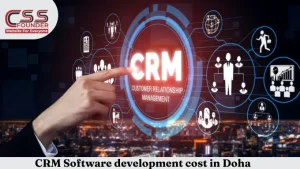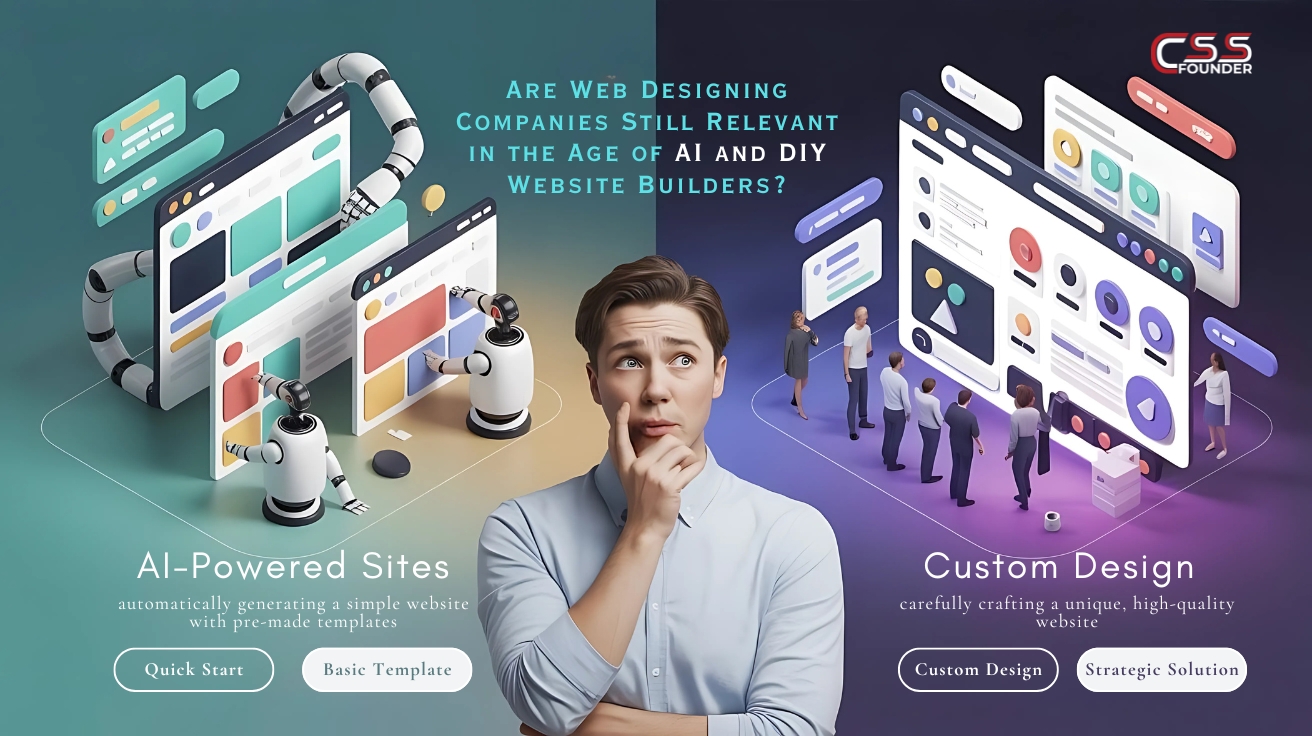Customer Relationship Management (CRM) software has become an essential tool for businesses in Doha looking to streamline their operations, improve customer satisfaction, and boost overall efficiency. As the capital of Qatar and a rapidly growing business hub in the Middle East, Doha has seen an increasing demand for customized CRM solutions. However, one of the primary concerns for businesses considering CRM software development is the associated cost. This article will explore the various factors that influence CRM software development costs in Doha and provide insights into budgeting for such projects.

Cost Breakdown of CRM software development costs in Doha
While exact costs can vary widely based on the factors mentioned above, here’s a general breakdown of CRM software development costs in Doha:
-
Basic CRM System:
A simple CRM system with core functionalities might cost between QAR 50,000 to QAR 150,000. This typically includes basic contact management, sales tracking, and reporting features.
-
Midrange CRM Solution:
A more comprehensive CRM system with additional modules like marketing automation, customer service ticketing, and basic analytics could range from QAR 150,000 to QAR 500,000.
-
Enterpriselevel Custom CRM:
For large enterprises requiring highly customized solutions with advanced features, integration with multiple systems, and complex workflows, costs can exceed QAR 500,000 and may go up to several million Qatari Riyals.
-
Ongoing Costs:
Beyond initial development, businesses should budget for ongoing costs such as:
Hosting and infrastructure: QAR 5,000 QAR 50,000 per year
Maintenance and support: 1520% of the initial development cost annually
Updates and new feature development: Variable, depending on requirements
Factors Affecting CRM Software Development Costs
-
Scope and Complexity:
The scope and complexity of the CRM system significantly impact the overall cost. A basic CRM with essential features like contact management and sales tracking will be less expensive than a comprehensive system integrating marketing automation, customer service, and advanced analytics. In Doha, businesses often require specialized features to cater to the local market, which can add to the complexity and cost.
-
Customization Requirements:
Off the shelf CRM solutions may not always meet the specific needs of businesses in Doha. Custom development allows companies to tailor the software to their unique processes and requirements. However, the level of customization directly affects the cost, with highly customized solutions being more expensive.
-
Integration with Existing Systems:
Many businesses in Doha already have established IT infrastructure. Integrating a new CRM system with existing software and databases can be complex and time consuming, thus increasing the overall development cost.
-
User Interface and User Experience:
A userfriendly interface is crucial for CRM adoption. Investing in a welldesigned UI/UX can increase initial costs but can lead to better user acceptance and longterm ROI.
-
Mobile Accessibility:
With the high smartphone penetration rate in Qatar, mobile access to CRM systems is often a requirement. Developing mobilefriendly or native mobile apps for CRM access can add to the overall cost.
-
Data Migration:
For businesses transitioning from older systems or manual processes, data migration is a critical step. The volume and complexity of data to be migrated can significantly impact the project cost.
-
Security and Compliance:
Doha businesses must adhere to local data protection laws and industryspecific regulations. Implementing robust security measures and ensuring compliance can increase development costs.
-
Development Team Expertise:
The expertise and location of the development team play a crucial role in determining costs. Hiring local developers in Doha may be more expensive than outsourcing to other regions, but it can offer benefits like better understanding of local business practices and easier communication.
Cost saving Strategies
To optimize CRM software development costs in Doha, consider the following strategies:
-
Phased Implementation:
Instead of developing all features at once, prioritize core functionalities and implement additional modules in phases. This approach can help manage costs and allow for adjustments based on user feedback.
-
Cloud based Solutions:
Opting for cloudbased CRM development can reduce infrastructure costs and provide scalability. Many businesses in Doha are embracing cloud solutions for their costeffectiveness and flexibility.
-
Hybrid Development Approach:
Combine local Dohabased developers for critical components and project management with offshore resources for costeffective development of standard features.
-
Opensource Platforms:
Utilizing opensource CRM platforms as a base for customization can significantly reduce development costs while still allowing for tailored solutions.
-
Thorough Planning and Requirements Gathering:
Invest time in comprehensive planning and requirements gathering to minimize costly changes during development.
-
User Training and Change Management:
Allocate resources for user training and change management to ensure smooth adoption and maximize the return on investment.
Conclusion
Developing a CRM software solution in Doha requires careful consideration of various factors that influence costs. While the initial investment may seem substantial, a wellimplemented CRM system can provide significant longterm benefits in terms of improved customer relationships, increased sales, and enhanced operational efficiency.
Businesses in Doha should approach CRM software development as a strategic investment rather than merely a cost. By carefully assessing their needs, choosing the right development approach, and implementing costsaving strategies, companies can develop effective CRM solutions that provide value without breaking the bank.As the business landscape in Doha continues to evolve, investing in a robust CRM system can provide a competitive edge. By understanding the cost factors and budgeting appropriately, businesses can embark on successful CRM development projects that drive growth and success in the dynamic Qatari market.





.png)


